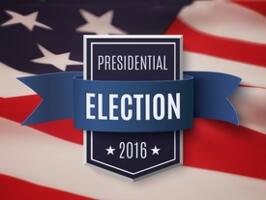Voters to Supreme Court Justices: Shut Up About Politics
Supreme Court Justice Ruth Bader Ginsburg raised eyebrows and even drew fire from her friends at the New York Times for her recent public criticism of Republican presidential candidate Donald Trump. Voters strongly agree that it’s bad for the high court when the justices make public political statements.
A new Rasmussen Reports national telephone survey finds that just 22% of Likely U.S. Voters think U.S. Supreme Court justices should express their opinions of political candidates in public. Sixty-seven percent (67%) disagree and say public comments like Ginsburg’s raise questions about the impartiality of the high court. Eleven percent (11%) are undecided. (To see survey question wording, click here.)
The 83-year-old Ginsburg, arguably the most liberal member of the Supreme Court, has since apologized for her public comments but not before making it very clear that she hopes Hillary Clinton is the next U.S. president. Most voters probably aren’t surprised: They’ve said in surveys for years that most Supreme Court justices are not impartial but instead have their own political agenda.
But even 52% of liberal voters agree that public political comments by Supreme Court justices raise questions about the court’s impartiality. That compares, however, to 80% of conservatives and 64% of moderates.
(Want a free daily email update? If it's in the news, it's in our polls). Rasmussen Reports updates are also available on Twitter or Facebook.
The survey of 1,000 Likely Voters was conducted on July 12-13, 2016 by Rasmussen Reports. The margin of sampling error is +/- 3 percentage points with a 95% level of confidence. Field work for all Rasmussen Reports surveys is conducted by Pulse Opinion Research, LLC. See methodology.
In mid-February, 40% of voters rated the Supreme Court’s job performance as good or excellent, its highest positives in nearly four years. Consistent with past surveying, though, 33% said the high court is too liberal, while 24% think it’s too conservative. Another 33% said the court politically is about right.
Most voters in virtually every demographic category think public political comments by members of the U.S. Supreme Court raise questions about the court’s impartiality.
Those under 40 are less concerned about political statements by Supreme Court justices than their elders are. Blacks and other minority voters are more receptive than whites to public comments like that.
Just 12% of Republicans and 18% of voters not affiliated with either major political party think U.S. Supreme Court justice should express their opinions of political candidates in public, a view held by 35% of Democrats.
Among voters who favor Trump over Clinton in our latest White House Watch survey, only nine percent (9%) say justices should express their opinions of candidates publicly. That compares to 38% of those who support Clinton.
Just over half of all voters think President Obama should be the one to pick the replacement for late Supreme Court Justice Antonin Scalia, although they don’t feel strongly about the president’s current nominee. But if the decision is pushed off, voters are closely divided over which presumptive presidential nominee would make the better choice.
Additional information from this survey and a full demographic breakdown are available to Platinum Members only.
Please sign up for the Rasmussen Reports daily e-mail update (it's free) or follow us on Twitter or Facebook. Let us keep you up to date with the latest public opinion news.
The survey of 1,000 Likely Voters was conducted on July 12-13, 2016 by Rasmussen Reports. The margin of sampling error is +/- 3 percentage points with a 95% level of confidence. Field work for all Rasmussen Reports surveys is conducted by Pulse Opinion Research, LLC. See methodology.
Rasmussen Reports is a media company specializing in the collection, publication and distribution of public opinion information.
We conduct public opinion polls on a variety of topics to inform our audience on events in the news and other topics of interest. To ensure editorial control and independence, we pay for the polls ourselves and generate revenue through the sale of subscriptions, sponsorships, and advertising. Nightly polling on politics, business and lifestyle topics provides the content to update the Rasmussen Reports web site many times each day. If it's in the news, it's in our polls. Additionally, the data drives a daily update newsletter and various media outlets across the country.
Some information, including the Rasmussen Reports daily Presidential Tracking Poll and commentaries are available for free to the general public. Subscriptions are available for $4.95 a month or 34.95 a year that provide subscribers with exclusive access to more than 20 stories per week on upcoming elections, consumer confidence, and issues that affect us all. For those who are really into the numbers, Platinum Members can review demographic crosstabs and a full history of our data.
To learn more about our methodology, click here.



